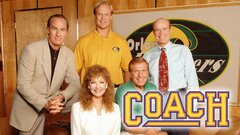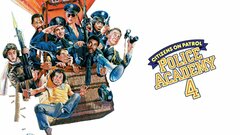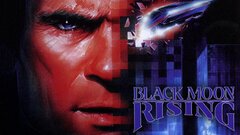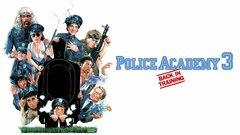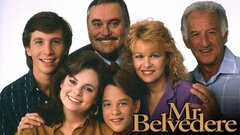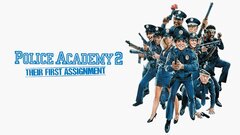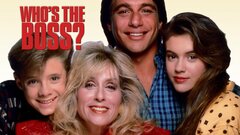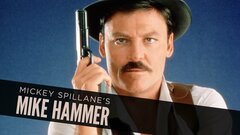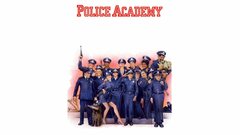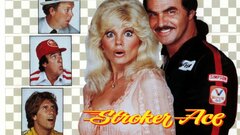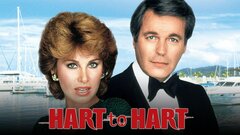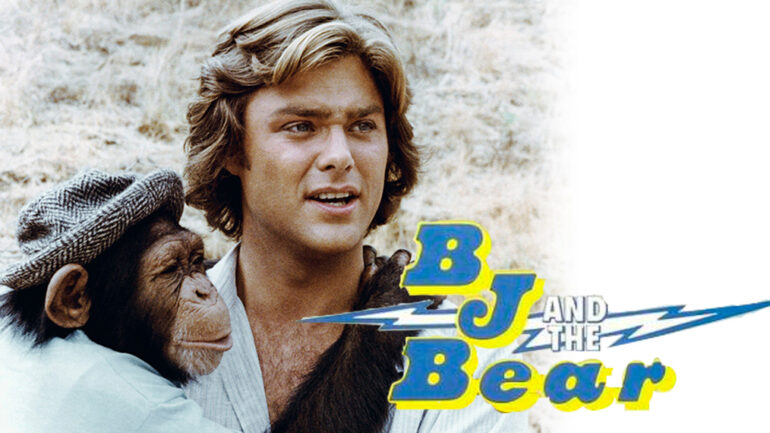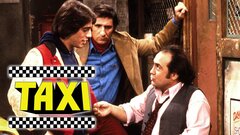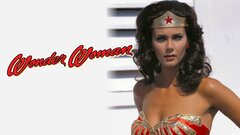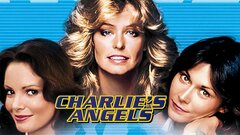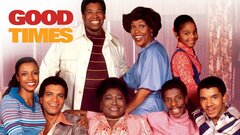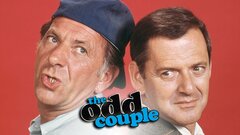One of the most physically formidable athletes in the history of professional football, Bubba Smith was a Super Bowl-winning defensive end for the Baltimore Colts before retiring in the mid-1970s to concentrate on acting in features and television, most notably in the "Police Academy" franchise. At 6'8," Smith was an intimidating presence on the field - he once joked that his game strategy was to grab a number of players, find out which one had the ball, and discard the rest. He often spoofed his sports persona on screen by playing genial, even passive figures like "Police Academy's" Moses Hightower, a gentle florist with self-confidence issues.
As an actor, Smith was frequently paired with another formidable gridiron great, Dick Butkus; their likable rapport together was often the best part of their collaborative projects. Though never a major star in Hollywood, Smith's football glories remained unvarnished after nearly four decades, and his honors included induction into the College Football Hall of Fame and the retirement of his college jersey in 2006.
Born Charles Aaron Smith in Beaumont, TX on Feb. 28, 1945, Smith was the second of three sons by Willie Ray Smith, Sr., a legendary high school football coach. His brothers, Willie Ray, Jr., and Tody, also enjoyed their own football careers at the collegiate and professional level. As expected, football was a part of Smith's life on a year-round basis, and he spent most of his free time honing his skills in twice-a-day games.
Unfortunately, football in the Southwest was largely off-limits to black college athletes due to prevalent racial issues. Thus, he abandoned his dream of playing for the University of Texas and headed north to Michigan State, where he played for the Spartans as a defensive end.
Few football players at either the collegiate or professional level could match Smith's stature and ability. Standing at 6'8" and weighing 270 pounds, he was a natural powerhouse when it came to blocking and tackling. But Smith was also exceptionally fast, an aberration for a player in his weight class. His combination of speed and strength was a major asset to the Spartans during his tenure, helping them to earn two Big 10 championships between 1965 and 1967. He also received All-American honors for himself in 1965 and 1966.
Smith played in one of the greatest matchups in college sports history, the controversial 1966 Notre Dame vs. Michigan State game. Smith had an important role in the game by devastating Notre's key quarterback, Terry Hanratty. The loss forced the Fighting Irish coach Ara Parseghian to run down the clock in the fourth quarter rather than attempt a win. This decision remained in fierce debate more than four decades later.
But Smith was more than a talented athlete. He was one of several black players who helped establish the Spartans as one of the best college teams of the 1960s. These players included future NFL and AFL superstars like Gene Washington of the Minnesota Vikings, the Houston Oilers' George Webster, and the Philadelphia Eagles' Jimmy Raye II.
Their success under coach Duffy Daugherty further paved the road for black athletes, a path that had been launched by players like Jim Brown. Smith's story also shed light on the Southwest Conference's shocking history of discrimination. If it were not for such policies Smith would have been a SWC player. Though rarely credited as such, Smith was an important figure in the integration of college sports.
In 1967, Smith was the first overall pick in the NFL draft, and went to the Baltimore Colts for an impressive seven seasons as a defensive end. As a Colt, Smith was selected All-Pro once and All-Conference twice. He played in the 1968 NFL championship game and two Pro Bowls in 1970 and 1971. He also took part in Super Bowl III against the New York Jets, and Super Bowl V against the Dallas Cowboys in 1971.
The Colts lost the first Super Bowl, but captured the championship in the second. However, the game was infamously error-riddled. Smith refused to wear his championship ring because of the poor quality of play. A knee surgery forced Smith to miss the 1972 season, after which he was traded to the Oakland Raiders. He returned to his home state in 1975 to play the remainder of his professional career with the Houston Oilers until 1977.
In addition to his physical abilities, Smith's tenure in the NFL was marked by his exceptionally positive nature. This quality endeared him to players, fans and journalists alike. It also helped him make the leap to his second career as an actor and advertising pitchman.
As a pitchman, he was frequently seen in popular commercials for Miller Lite Beer, towering over another tough football vet turned actor, Dick Butkus of the Chicago Bears. The pair had an enormous chemistry together, and Butkus' scrappy delivery complimented Smith's casual strength and gentle demeanor. These two would team up for numerous projects in subsequent years. However, Smith soon tired of the image as a beer pitchman and left the commercial series for work on television and the occasional feature.
As an actor, Smith frequently played roles based on his football past or imposing size. In 1984, he had his breakout year as an actor. After penning his autobiography, Kill, Bubba, Kill!(1983), a title earned from the crowd chant that greeted him at every Spartans game, he landed his most indelible screen role in "Police Academy" (1984). He played as Moses Hightower, a retiring florist whose towering frame concealed a gentle heart.
Hightower appeared in six of the seven "Police Academy" films, and remained essentially the same throughout the series. Despite their critical drubbing, the "Police Academy" films were enormously popular with audiences, and helped to mint Bubba Smith as an unlikely comic star.
The series also largely marked the high point of Smith's acting career. He dabbled in a number of television series over the next decade, including a small screen adaptation of "Blue Thunder" (ABC, 1984) and the ghastly "Half Nelson" (NBC, 1985) with Joe Pesci as a diminutive New York cop who opens a Beverly Hills security service for Dean Martin. In both cases, Smith was paired with Dick Butkus as sidekicks to the series leads, but their popularity among the sports and beer crowds did little to save the shows.
Smith later revealed that "Black Moon Rising" (1986), in which he starred as the government tough on Tommy Lee Jones' back, was his personal favorite. Meanwhile, in 1997, he reprised Hightower for the last time in an episode of the syndicated "Police Academy" series (1997).
Smith spent the final decades of his life enjoying the fruits of his stellar athletic career. He was elected to the College Football Hall of Fame in 1988, and saw his Spartans jersey, Number 95, retired on Sept. 23, 2006. On Aug. 3, 2011, Smith was found dead in his Los Angeles home by his caretaker, having succumbed to apparent natural causes. He was 66.











